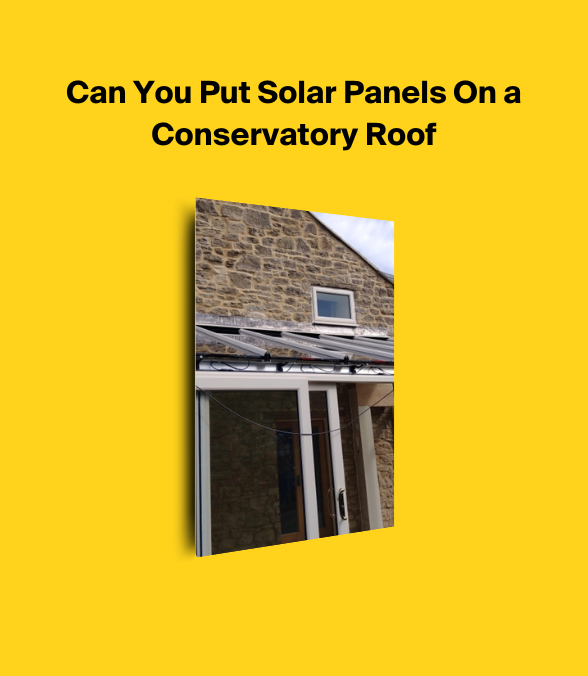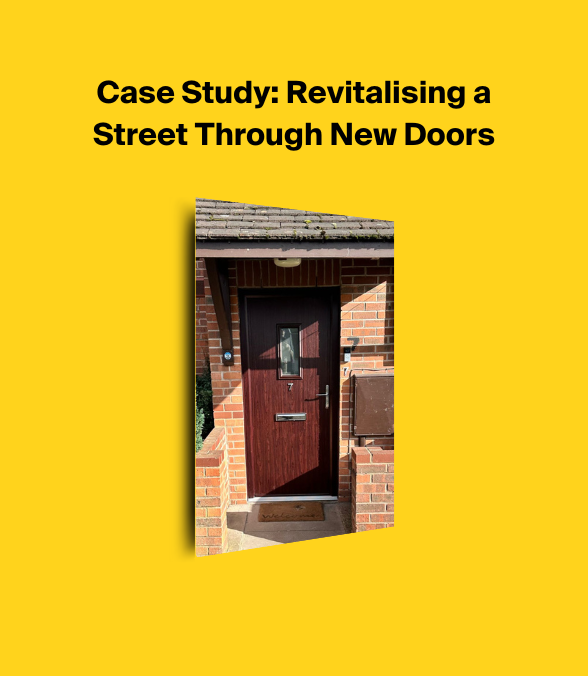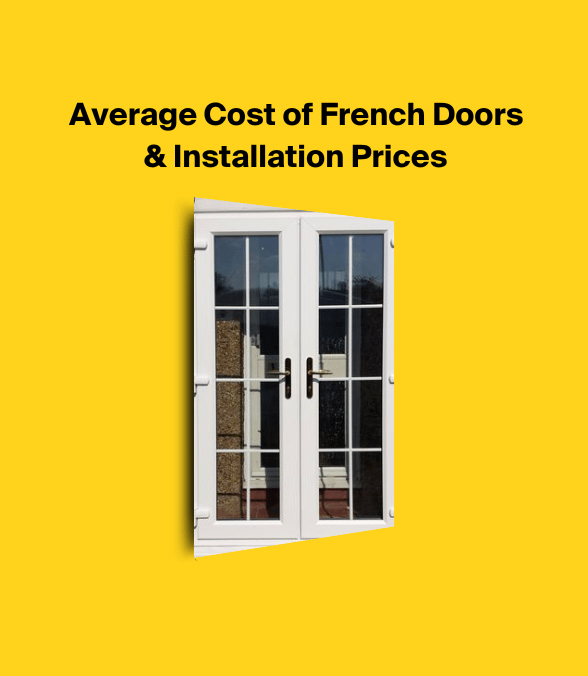Guide to What Composite Doors Are Made From
Complete your home in style and discover luxury and comfort with the best composite doors in the UK. Forget traditional doors - these are far better options with guarantees for durability and security.
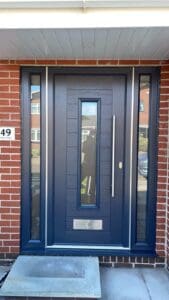
Composite doors are taking over from wooden doors - and for a good reason - but why should you also choose them?
The secret lies in what they're made of, so let's look at what composite doors are made of and what their benefits are compared to doors made of solid timber.
What Materials Are in a Composite Door?
Composite doors are intricately designed and manufactured using highly efficient materials, including GRP (glass-reinforced plastic), which performs much better than uPVC doors.
The GRP is moulded to have a grainy texture for a fantastic visual aesthetic while retaining its durability.
The core is filled with a solid wood interior contributing to an energy-efficient home. This also makes the composite door design highly advantageous according to energy efficiency standards in the UK.
Plus, all edges are protected by a weatherproof polymer, preventing elements such as rain from permeating to the core and causing significant damage over time.
All materials used in manufacturing composite doors are made for beauty and durability, hence why they are one of the leading solutions for exterior doors in the UK.
Composite Doors Are Very Low-maintenance
One of the most common problems with wood doors is that the panels might start to peel away over time, or the solid timber core might bulge. As a result, timber door designs and some single material doors are not the best for the British climate.
Homeowners have to maintain doors of this type constantly, and even then, they have to be replaced sooner than a composite door, which is made for high-pressure conditions.
Most composite doors are low maintenance and don't need much maintenance. You can find more tips on caring for your composite door in our blog. You only need soapy water and a cloth to clean away the dirt.
High-endurance composite doors made of materials such as GRP with weatherproof edges have longer guarantees, so you won't have to replace your door often.
Do Composite Doors Fade in the Sun?
Fading in the sun and surface chipping are well-known disadvantages of solid timber doors that drove the growth of uPVC and composite door development.
The design was a solution to doors degrading due to prolonged heat exposure, dampness, and temperature changes due to the changing seasons.
Each composite door has individual components that are weatherproof and equipped for heavy-duty use. They're the perfect door for exteriors since they excel under all harsh weather elements.
Due to their resiliency, composite doors don't quickly fade in the sun, unlike those with less durable components.
For example, wood doors need constant attention with polish and weather-resistant paint, but with a composite door, you can get by with only soap and water.
Are Composite Front Doors Secure?
Your security takes priority, and you should expect no less from a composite door.
With security concerns such as lock-picking, drilling, and other forms of tampering becoming more widespread, most composite door designs have high-end locks with anti-tamper security measures.
One of these locking mechanisms is the ABS security cylinder with PAS24: 2016 compliance. Also, the sturdy design and hinging mechanism makes for higher security and less malicious tampering probability.
Even the solid timber core makes the door sturdier than wood panel designs such as hollow core doors. To go the extra mile, some internal frame mechanisms make it harder for tampering as well, depending on their security mechanisms.
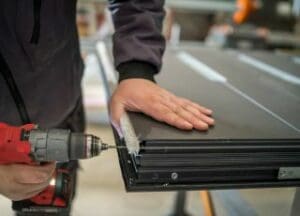
What Is the Average Lifespan of a Composite Front Door?
A composite front door lasts much longer than traditional wooden doors, with an average life expectancy of around 30 years.
Composite doors are highly durable and can last even longer than this without needing major repairs or replacing.
However, after around 30 years or as needed, you might want to replace, repair, or maintain the seals and other hardware that isn't as durable like handles and hinges.
Over its lifespan, you shouldn't have any big problems regarding its thermal performance either - making it a worthwhile investment.
How Good Are Composite Doors For Insulation?
As you might know, doors and windows are the prime suspects for losing heat, so energy-conscious homeowners need doors with sufficient heat retention.
Fortunately, since composite doors are made out of different materials, they're designed to be highly energy-efficient.
A composite door of warm foam or solid timber core retains heat much better than traditional uPVC doors and wood ones.
Some composite door ranges have 1.4 W/m²K U-Value depending on the specific materials used. As a result, this type of door is energy-efficient, and the design is good enough for harsher climates.
This energy-efficiency feature makes composite doors even more desirable in the UK, with all the developments gearing toward a lower carbon footprint.
Are Composite Doors Worth the Money?
Composite door prices are a bit higher than traditional timber doors and many other designs on the market.
But is the price justified for a composite door? Definitely, when you consider all the benefits of this type of door.
High-endurance composite doors retain heat through thermal efficiency, surpassing some of the most durable uPVC door solutions. As a result, you save extra costs that could otherwise be lost with more traditional door designs.
At the same time, with the thermal efficiency provided by these doors, you can contribute to your home being more compliant with energy-efficiency initiatives from the government.
In addition, the durability and easy maintenance of composite door designs can add more value to properties.
The different materials used make the blended door option last longer, even in harsh weather conditions; therefore, in a nutshell, composite doors are well worth their price.
See our guide on the costs of new front doors to get a better idea of what you may be paying to buy and install a composite door.
Can You Repaint a Composite Door?
Composite doors are perfect for their versatility. Whether you recognise slight fading after long years of service or want to change the door colour, the process is straightforward and convenient.
In fact, "DIY-ers" might prefer a composite door over other traditional alternatives. The reason is that there's less surface preparation and fewer materials required.
Before painting or renewing the colour, simply wiping it down to remove any excess dust or dirt is all there is to it. No sandpapers or priming is needed depending on the scope of your composite door's paint job.
When using polytrol to brighten up the colour again, the process is much more straightforward than repainting. This is another option that composite doors made from high-grade polymers have when you want to change it up.
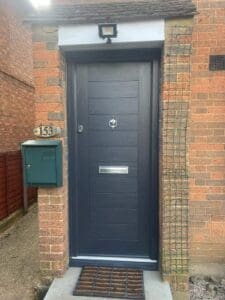
Final Thoughts
Upgrade your front door with high-quality composite doors that complement your home's style. Switching to this door type has long-lasting benefits that trump most other materials and designs.
Make the right decision for your security and peace of mind by getting a high-quality composite door.



